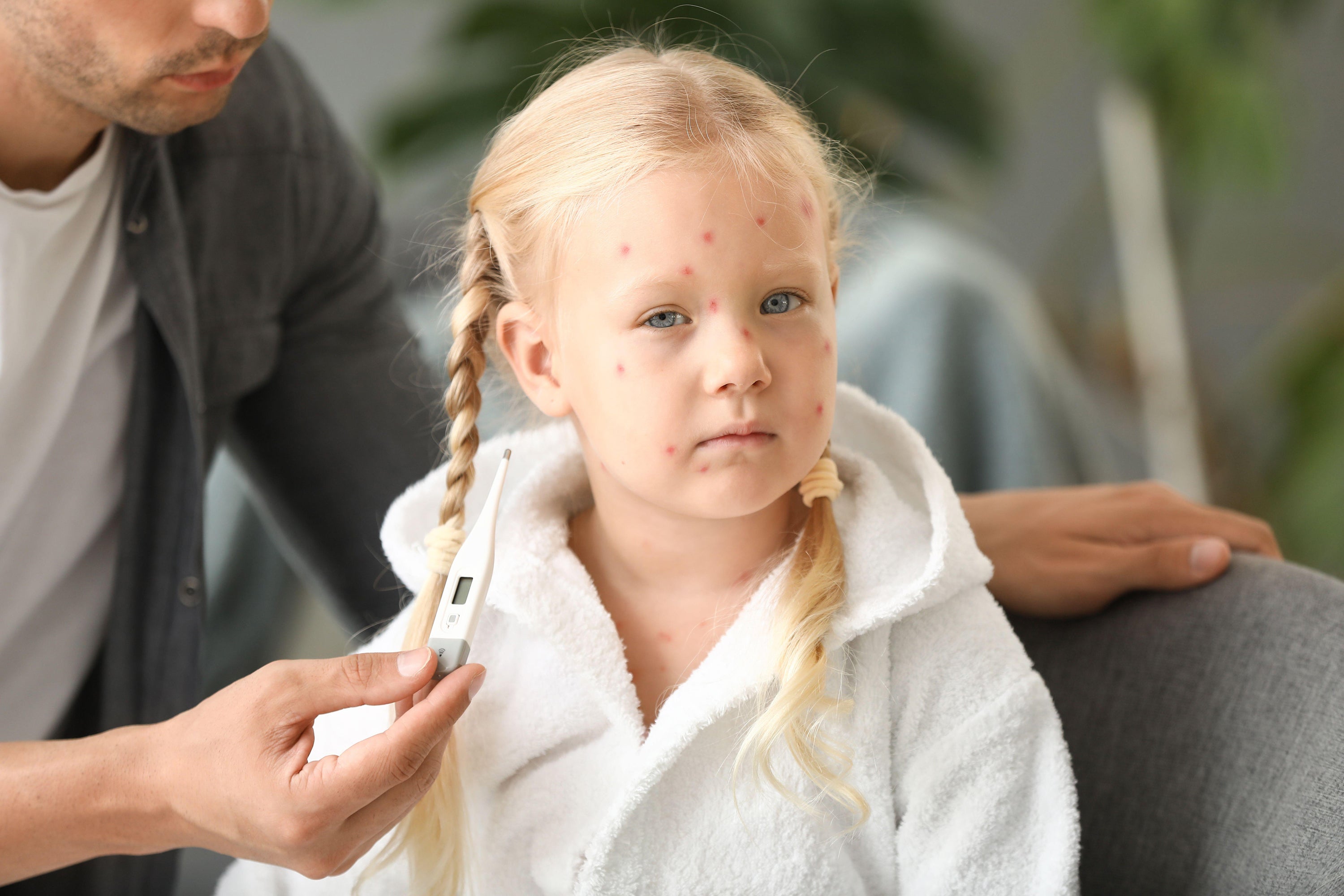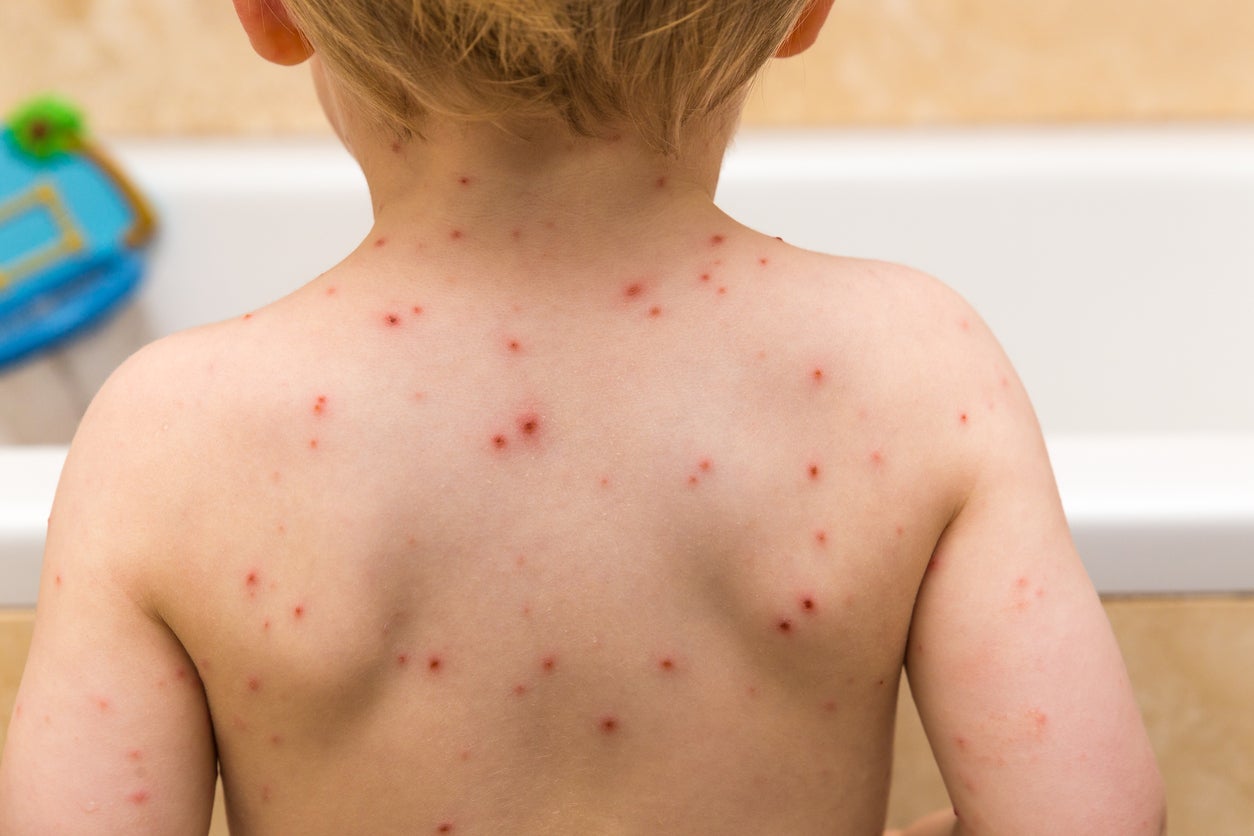Chickenpox jab should be added to routine childhood vaccine programme, advisers say
Vaccine has been given in other countries, including US and Australia, for years

The chickenpox vaccine should be introduced on the NHS for children, scientists have advised the government.
The Joint Committee on Vaccination and Immunisation (JCVI) said the jab should be given to youngsters in two doses when they are aged 12 months and 18 months.
The JCVI has also recommended a temporary catch-up programme for older children be included in the initial rollout.
It said data from countries suggests the vaccine (also known as the varicella jab) would dramatically reduce circulating chickenpox and prevent most severe cases in children.
The JCVI has also recommended a temporary catch-up programme for older children be included.
The Department of Health and Social Care (DHSC) will now look at the recommendation.

The chickenpox vaccine has been given in other countries, including the US and Australia, for many years but the NHS has always said there is a worry that introducing it in the UK could increase the risk of chickenpox and shingles in adults.
It said that if a childhood chickenpox vaccination programme was introduced, people would not catch the virus as children, leaving unvaccinated children to get chickenpox as adults, when cases can be more severe.
But thinking around the vaccine has now changed.

Professor Sir Andrew Pollard, chairman of the JCVI, said: “Chickenpox is well known, and most parents will probably consider it a common and mild illness among children.
“But for some babies, young children and even adults, chickenpox or its complications can be very serious, resulting in hospitalisation and even death.
“Adding the varicella vaccine to the childhood immunisation programme will dramatically reduce the number of chickenpox cases in the community, leading to far fewer of those tragic, more serious cases.
“We now have decades of evidence from the US and other countries showing that introducing this programme is safe, effective and will have a really positive impact on the health of young children.”
An itchy, spotty rash is the main symptom of chickenpox. It can be anywhere on the body.
Chickenpox happens in 3 stages. But new spots can appear while others are becoming blisters or forming a scab.
Join our commenting forum
Join thought-provoking conversations, follow other Independent readers and see their replies
Comments
Bookmark popover
Removed from bookmarks